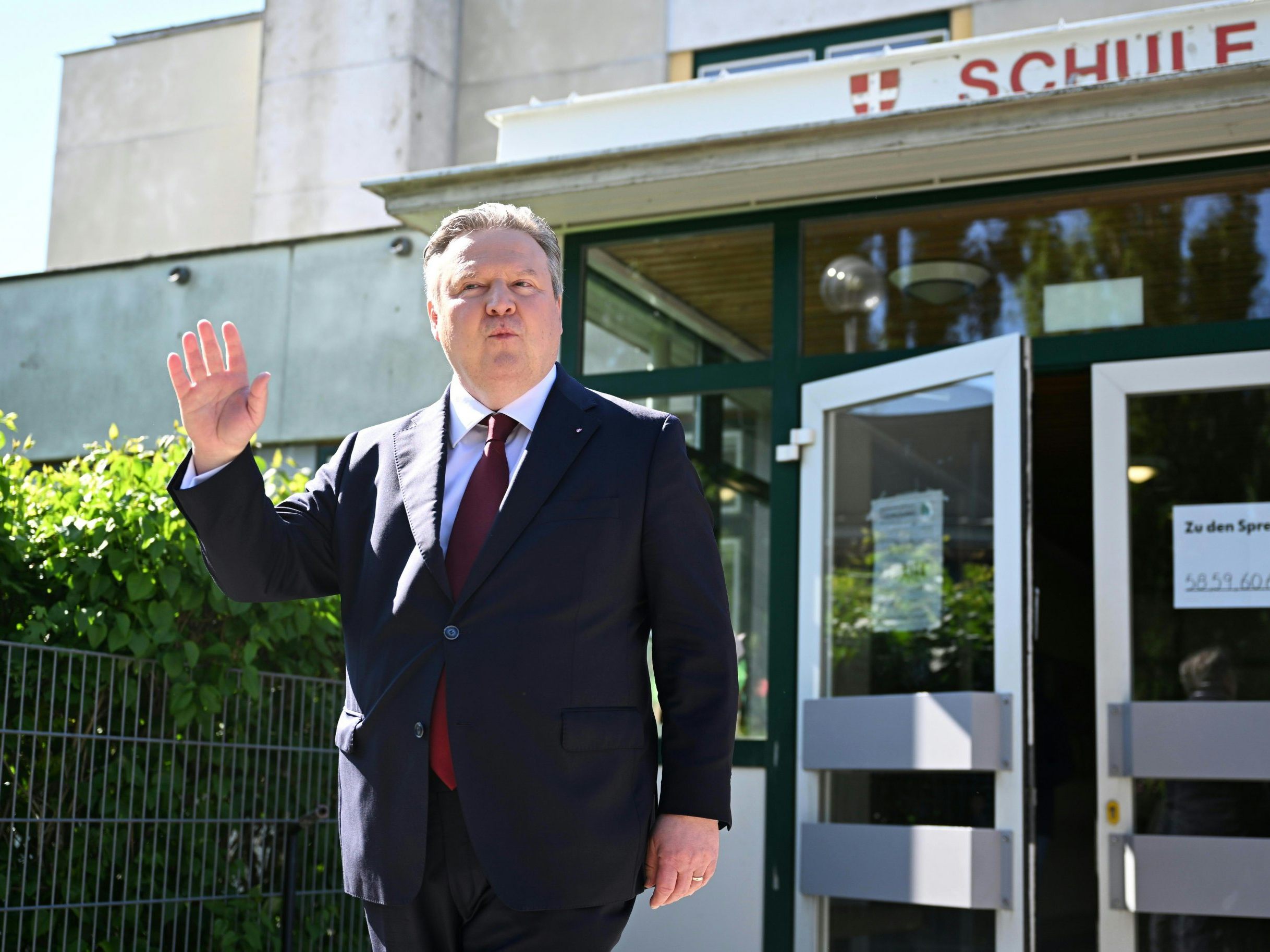Michael Ludwig: Vienna's Old and New Mayor in Profile

The Vienna mayor continues to be Michael Ludwig. The election Sunday may not have been a real holiday for the red city leader, but despite losses for his SPÖ, he likely finds a very comfortable situation for the upcoming government negotiations on Monday. If the projections are confirmed, he can choose between four potential partners.
Successor to Häupl
Ludwig certainly has his share in the continued strong performance of the Vienna Reds. He has long stepped out of the shadow of his predecessor Michael Häupl, whom he succeeded in 2018. Since then, he has been the undisputed number one in the Vienna state party.
At a special party conference, he was able to prevail against his rival Andreas Schieder. Ambitions for the top position had been attributed to him for some time. If there were two camps in the SPÖ at that time, the trenches have long been filled. Even political opponents would likely not dispute that Ludwig quickly united the party.
That the new man at the top is occasionally still greeted as "Mayor Michael Häupl" is probably also due to the shared first name. In any case, Häupl brought Ludwig into the city government in January 2007. The Viennese, born on April 3, 1961, took over the city council post for housing and urban renewal from the later Chancellor Werner Faymann, who moved to the federal government as Minister of Infrastructure.
Vice Mayor Ludwig
In March 2009, he also rose to Vice Mayor, although he had to give up the title to the new city councilor Maria Vassilakou (Greens) during the first edition of Red-Green in 2010. Ludwig's political career began relatively late. In 1994, he was elected district councilor in his home district of Floridsdorf. He is also the district party chairman there. He always emphasizes that the so-called outer districts are particularly close to his heart.
In 1996, he entered the Federal Council, where he stayed for three years. In the municipal council, Ludwig then took on the position of deputy chairman of the cultural committee. He was able to gain experience for this task in his main profession. The political scientist and historian is chairman of the Association of Viennese Adult Education and thus head of the traditional adult education centers in Red Vienna.
Ludwig worked as a course and project manager in adult education before becoming the educational director of an adult education center in 1986. In addition, he was the state director at the political academy of the SPÖ, the Dr. Karl Renner Institute, from 1991 to 2007.
For a long time, he was said to belong to the "right wing" of the party. The fact that he favored Viennese residents as housing councilor in the allocation of municipal housing and announced an alcohol ban at Praterstern as the newly minted SPÖ leader seemed to confirm this assessment. In fact, the course of the Vienna Reds remained largely unchanged, especially regarding social policy.
Change of Partners after Vienna Election
The fact that Ludwig bid farewell to the Red-Green coalition after the 2020 election and forged an alliance with the NEOS likely had little to do with ideological or directional debates. Rather, the relationship with the then Green leader Birgit Hebein did not seem to be the best. The coalition with the City Hall Pinks, on the other hand, proceeded largely friction-free.
The Ludwig years were also strongly marked by the Corona pandemic. Here, the mayor relied on comprehensible decision-making. Restrictions or any relaxations were always announced after extensive consultations with a panel of experts. The Viennese rules were sometimes stricter, but were largely supported by the population.
Criticism of Ludwig
However, severe criticism rained down on the city chief in the summer of 2022. He had granted Vienna Energy billion-dollar loans, which had faltered due to exorbitantly increased security deposits at the electricity exchanges. Ludwig described the loans as without alternative. However, the fact that he had not immediately informed either the city senate or the municipal council was held against him for a long time.
Ludwig also usually showed restraint internally within the party - at least outwardly. He very rarely made jabs at the respective federal party leaders. For a long time, he supported Pamela Rendi-Wagner as party chair, before the Vienna state party directed Andreas Babler to the party leadership to prevent Hans Peter Doskozil.
It was heard that Ludwig criticized the involvement of the Vienna party as expandable during the recent government formation. Ultimately, Ludwig's finance and economic city councilor Peter Hanke was sent to the federal government. It was the first departure in the red city government team nominated by Ludwig.
Ludwig also had joyful experiences in the town hall in the private sphere: In 2018, he married his long-time partner Irmtraud Rossgatterer in the Red Salon of the town hall. He cites Bruno Kreisky as a political role model, musically he is a fan of Ostbahn-Kurti and the Vienna Symphony Orchestra. Even with his favorite drink, he shows local patriotism: Viennese water. Ludwig is generally considered less fond of drinking than some of his predecessors were reputed to be.
Ludwig's Short Biography
About the person: Michael Ludwig, born on April 3, 1961, in Vienna, married. Completed studies in history and political science with a doctorate. From 1991, head of the Renner Institute Vienna. 1994-1995 district councilor in Floridsdorf. 1996-1999 member of the Federal Council. From 1999, member of the Vienna State Parliament. From January 2007, city councilor for housing. Since January 2018, Vienna SPÖ leader, since May 2018, mayor of Vienna.
(APA/Red)
This article has been automatically translated, read the original article here.





